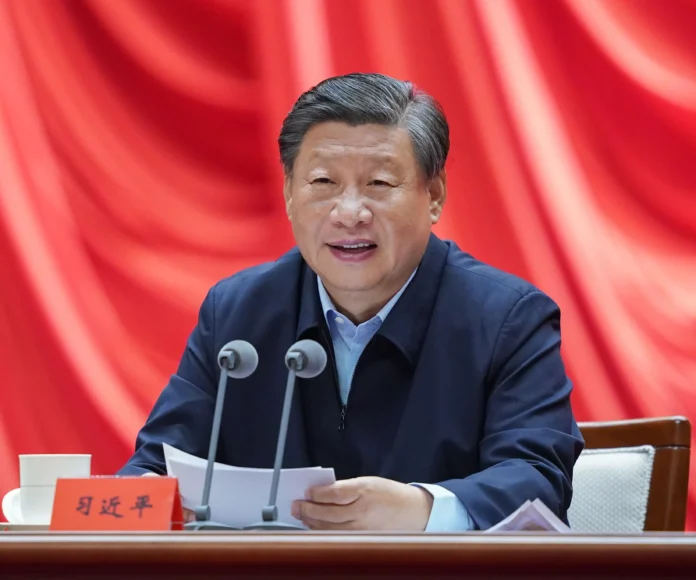Author: Stephen M. Walt
Affiliation: Harvard’s Kennedy School of Government
Organization/Publisher: Foreign Policy
Date/Place: March 31, 2021/ USA
Type of Literature: Analysis
Word Count: 2016
Link: https://foreignpolicy.com/2021/03/31/china-wants-a-rules-based-international-order-too/
Keywords: US-China Competition, Rules, Norms, and Liberal International Order
Brief:
The author argues that China is not seeking to dismantle the US-led international order based on (liberal) rules in order to establish a logic of power and instability as an alternative, but rather the Chinese, in turn, seek to shape the rules upon which this order is based. This is the essence of competition between the two powers, that is, who will define the rules of the international order in the twenty-first century? And to which side will the other countries be inclined, to Washington’s preferences or to Beijing’s? The author starts his article by denying Antony Blinken’s claims that the US is seeking to strengthen the international order based on (liberal) rules in contrast to China’s lack of such a vision and pushing the world towards an order in which “might makes right.” This claim is misleading in three ways: 1. It overlooks the US ’desire to ignore the rules or evade them when they seem inappropriate to it. The US also sometimes believes that “might makes the right” and that the winner takes all, as it did after the collapse of the Soviet Union. 2. China accepts many of the existing international order’s principles, defends some of them, and will seek to preserve its features that serve its interests even if China will be the most powerful side in it. 3. It is misleading to say that abandoning the current rules-based order will leave us in a world free of rules and laws, as victims of naked power politics. Scholars, regardless of their different perspectives, agree that all international orders require a set of rules to manage the various interactions. Walt cites the definitions of Hedley Ball, John Mearsheimer, Henry Kissinger, John Ikenberry, and Patrick Porter on the international order. The author then explains the differences between the American and Chinese conceptions of a rule-based order. While Washington prefers a multilateral order that somewhat takes into account democratic governance, individual rights, market-based economies and prompts others to change their local arrangements according to these rules, Beijing – by contrast- prefers a more Westphalian conception of order in which state sovereignty and non-interference are paramount, and in which liberal concepts of individual rights are minimized, if not completely rejected. In the context of the competition between the two visions, the author does not know which one will win in the coming years, but he stresses that the US and its allies will not be able to write all the rules on their own. Rising China will have great ability to shape some of these rules or refuse to abide by others. The US and China will also have a great influence on the rules that appear either globally or within partial orders that each of them may lead, but they will have to concede on a number of cases to less powerful countries and give them what they want in order to gain their compliance. In addition, he believes that the rise of China (and Russia to a much lesser extent) will give other countries more options than they had during the unipolar era. Today, Iran’s resort to China to reduce the negative impacts of US sanctions is a good example. In another part, the author poses a question related to how other countries respond to the American and Chinese competing visions of the world order, arguing that despite the preference for autocratic nationalists in some countries for the Chinese vision that rejects liberal values about sovereignty, China’s aggressive behavior and its willingness to punish others raises growing concerns among them regarding what a China-centered order might look like. On the other hand, the author refers to the preference of many countries for the American vision and leadership, despite their annoyance with some of Washington’s negative behavior. This is due to the US geographical distance from others and its relatively good intentions, as this has made it seem less threatening to others, at a time when countries in Eurasia, for example, are concerned about each other more than they were concerned about the United States. Therefore, American support was always desirable for them. In this regard, the Biden administration’s active diplomatic efforts and showing respect for allies and partners – unlike what Trump was doing – will help strengthen the American vision for the international order, but it will not be sufficient. Hard power (military and economic strength) will be more important in determining the fate of competition between the US and China to set rules for future international interactions. Hard power still buys its possessors a lot of deference, so it makes no sense to provoke the anger of a superpower like the United States if you are disgusted by the behavior of its leaders, as it seemed during the Trump era. Finally, the author argues that China will not be able to dominate the world even if it reaches its highest economic ambitions in the twenty-first century. However, such a position would give it a great deal of influence over the international order, because other countries would be less willing to challenge it openly and would have to adapt some of their practices to accommodate Chinese preferences. However, “if the United States keeps pace economically and retains key advantages in most of the core technologies on which future productivity depends, then the 21st-century order is likely to favor Washington’s preferences more than Beijing’s.” All of this begins with domestic US reforms to maintain the economic strength needed to compete with China.
By: Djallel Khechib, CIGA Senior Research Associate




